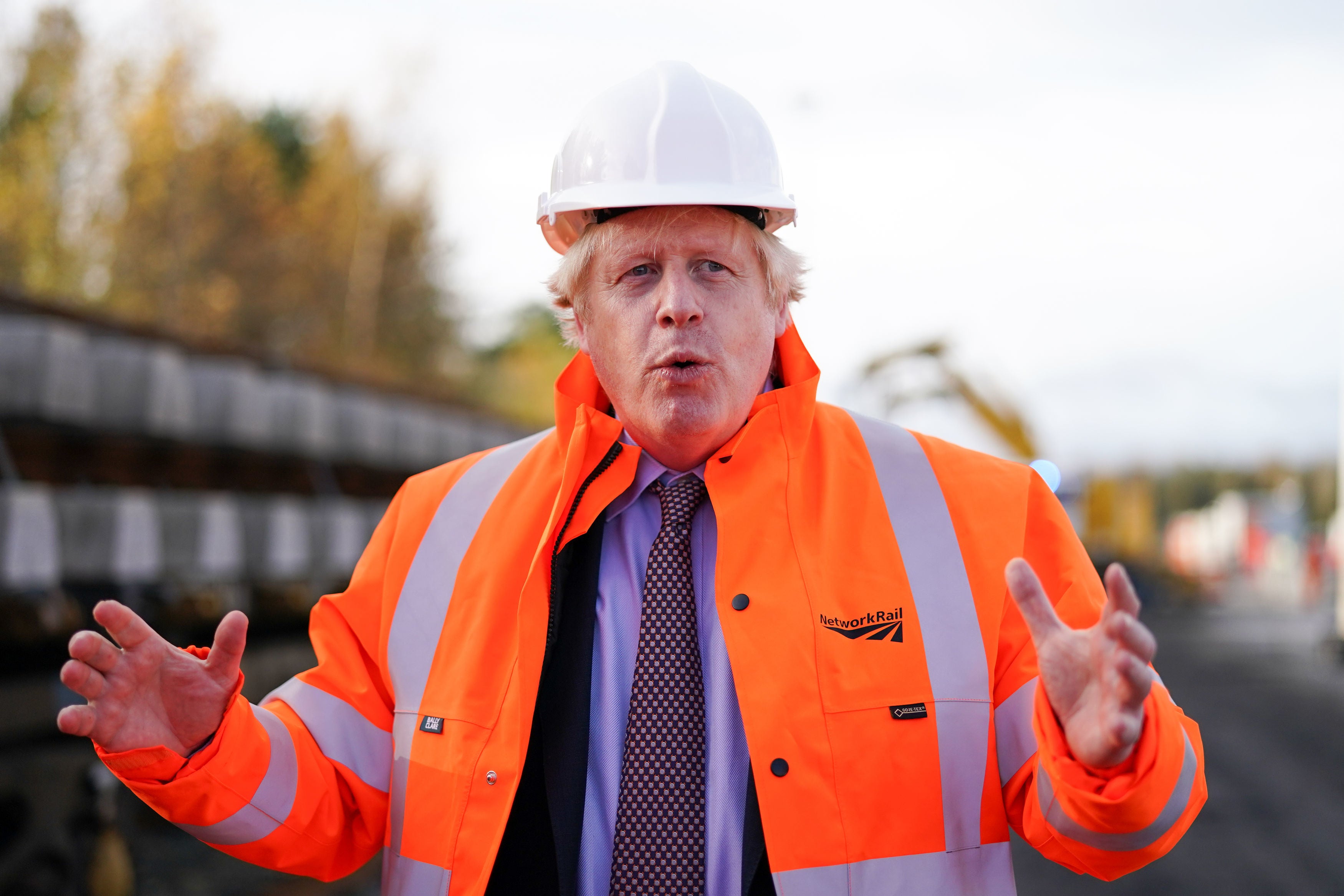Free the cities, free the North – then we might have a chance of levelling up
While much of the rest of the country crumbles, we rely on London to keep delivering. It’s an imbalance that must be corrected, writes Chris Blackhurst


The headline in The Economist could not be more pointed. “Free the North” cries the magazine, in a major piece that outlines the yawning gap in our land, between the prosperous South and the struggling North, and suggests that the divide must be closed and how.
One stark finding came from the OECD (the Organisation for Economic Cooperation and Development), which determined that 11 British second-tier cities, mostly in the North of England, have a gross value added (GVA) per worker of 86 per cent of the national average. Contrast that with second-tier cities in most countries, whose productivity matches or exceeds the national average. London is as rich as Paris, but metropolitan Birmingham or Leeds is nowhere near as rich as Lyon or Toulouse.
No one should be happy about this lopsided picture, be they proud Northerner or smug Southerner. “The country’s long-running growth problem cannot be solved – more to the point, has not been solved – by one superstar metropolis,” The Economist concluded.
While much of the rest of the country crumbles, we rely on London to keep delivering. It’s an imbalance that must be corrected, if social unrest and healthcare poverty are to be avoided.
Further, for how long can London retain its hegemony? Post-Brexit, the City is clinging on, but the mood is flat – and in some quarters, worried. The drip, drip towards other financial centres is slow but inexorable.
London leads in creative industries and services, but these are fickle sectors, easily replicated elsewhere. Again, it’s strong in tech, but similarly this is an area constantly under global threat.
The concept of rectifying the domestic bias is not new. Boris Johnson made a splash with his call for “levelling up”. Previously, however, another Tory, George Osborne, had pushed the Northern Powerhouse as the solution. Northern Powerhouse was undoubtedly overdue, and it was smart and brave, but if there was a flaw, it was in giving the impression that infrastructure improvements provide the answer.
They don’t. They’re much required, but it is worth remembering that the North of England was once a manufacturing, heavy-engineering and trading hub without trans-Pennine motorways and rail links. Likewise, to be a star global player in, say, tech and biotech does not demand fast roads and railway lines.
They must happen – it cannot be right that one heavily populated region should be travelling on heavily clogged roads and slow trains – but they are not the be-all and end-all that some have suggested.
Then, along came Johnson with “levelling up”. His clarion pitch was inspired – no senior politician had articulated the chasm between North and South so simply and persuasively. Like the best advertising slogans, it succeeded – winning, in his case, the 2019 general election.
What it actually meant, however, no one was sure. When Johnson was challenged, he fell back on platitudes and boosterish rhetoric. Precise detail was sadly lacking, and still is.
A third figure, in the heavyweight form of Gordon Brown, has now suggested that constitutional reform, devolving power to the regions, would go some way towards helping to narrow the gulf.
The large metropolitan centres are Labour, and in the EU vote they were Remain. In Tory eyes, they are not to be trusted
It would, and The Economist welcomes Brown’s proposals. The article goes further, suggesting the focus should be firmly on the cities, not the towns; that big conurbations should be the target for public investment; and that they should be allowed to raise their own fiscal incomes. Only 6 per cent of tax revenue in Britain is collected by local government, much of it for social care. That compares with 14 per cent in France, 32 per cent in Germany, and 36 per cent in the US.
Free the cities, such as Manchester; free the North – that is the concluding message. That’s all well and good, but to have any hope of occurring, it demands a sea-change in the attitude of politicians at Westminster.
There is a reason why the money and the moves declared by the Conservatives to constitute “levelling up” have been aimed at towns. Ministers have promoted their multibillion-pound Towns Fund, doling out money across the North. The Treasury is relocating workers to Darlington, not Manchester or Leeds.
That’s because they can achieve a greater impact politically by spreading largesse across many constituencies, the promise of which gave Johnson his red wall seats and a thumping victory.
There is another factor: the large metropolitan centres are Labour, and in the EU vote they were Remain. In Tory eyes, they are not to be trusted. Their elected mayors tend to be Labour. Allowing them greater freedom and say, and larger amounts of cash to spend, is anathema.
But not just for the Tories. Even though those cities are Labour, Keir Starmer and his Westminster colleagues are not so keen to give extra rein to Andy Burnham, for example, in Greater Manchester. The “King of the North” may be a member of the same party, but arguably poses more of a challenge to Starmer and Co than any Tory.
Increasing his standing would only devalue that of the national leader. Indeed, to give the nod to Burnham and his fellow mayors to raise taxes and distribute the resulting funds as they wish would bring into sharp relief the question of what Westminster is for.
The traditional political powerbase in London would wilt; civil servants in Whitehall would lose their grip. No, minister: it must not happen.
It’s a nice idea, but like so much else that is wrong with our traditional body politic, such as the House of Lords, it is hard to conceive of politicians at Westminster voting for their own diminution.
“Free the North” sounds good, and has much to commend it, economically, socially and politically. But there are degrees of freedom, and the total kind, which is what the diagnosis demands, is a prescription too far. A pity, but alas the reality.
Join our commenting forum
Join thought-provoking conversations, follow other Independent readers and see their replies
Comments



Bookmark popover
Removed from bookmarks